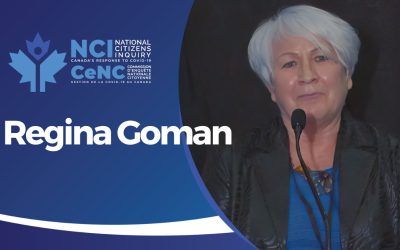Try this for a week: Watch the news every day and pay attention to how many stories talk about what the government should do for people. Government spending on health care, education, welfare and other aspects of the social safety net are regular features on just about every evening newscast. Appended to them is the debate over which level of government should pay: federal or provincial.
Ironically, the thing that is overlooked in all this wrangling is frank discussion over the one thing humanity is most capable of doing – creating wealth.
There are several policy components that facilitate the creation of wealth, among them are: an unwavering loyalty to the principle that an individual’s right to own and manage his or her property will not be infringed; a bare minimum of regulation; and very low tax rates.
An unwavering loyalty to property rights is essential for a couple of reasons. The first is that personal property provides a moral context for society. The more of a nation’s resources the government owns or controls, the more people depend on the government to give them what they need. Dependency weakens individual character and even has the capacity to devastate whole industries. The right to own and control property, including land, possessions, income, and one’s own labour, encourages wise self-management, self-improvement, and the prudent use of resources. Without property rights, power in a society is centralized. Envy, jealousy, and an aspiring political and bureaucratic class will dominate it.
The right to property also ensures that society’s risk takers and creative thinkers will be harnessed in a way that brings benefits for all. Bill Gates is the richest man in the world because he provides a product and service that makes life easier for millions of people. Property rights and the opportunity for personal gain in the form of monetary compensation make his creation possible. This is the same reason that farmers and ranchers improve their land holdings and other assets, why the owners of commercial property are careful to maintain their buildings, and why those who own their own car change the oil.
A minimum of regulation is necessary to make certain that peoples’ energies are channeled productively. Regulation consumes resources and impedes development, thereby ensuring that opportunities for wealth creation are diminished or nonexistent. Consider how much government regulation actually costs: Thousands of lawyers and accountants spend most of their time and a good portion of their clients’ money figuring out how to dodge bureaucratic decrees. Excessive regulation demands that their creative energies and those of the people they represent are drawn away from more productive undertakings.
Low tax rates are necessary for wealth creation because wealth cannot be created without accumulated capital. Capital is to wealth creation what a pipe wrench and soldering torch are to a plumber. Without capital new buildings are not built, wells are not dug, mines are not opened, and new businesses do not start. Taxes slow down or stop the accumulation of capital, making the entire nation poorer.
The moral of the story is that Ottawa’s constant propensity to look to provinces that create wealth – such as Alberta and Ontario – so it can redistribute that wealth to provinces that do not create it indicates that Ottawa doesn’t understand one of the most important lessons of the 20th century: The abundance and availability of wealth are always a consequence of policy rather than geography or natural resources. With the right mix of policies, ordinary people have the opportunity to bring almost unlimited new wealth into being.
Kevin Avram is a former director of the Prairie Centre. He currently serves as president of the Edmonton-based Citizens Centre for Freedom and Democracy. This article was originally printed in May 2002.


